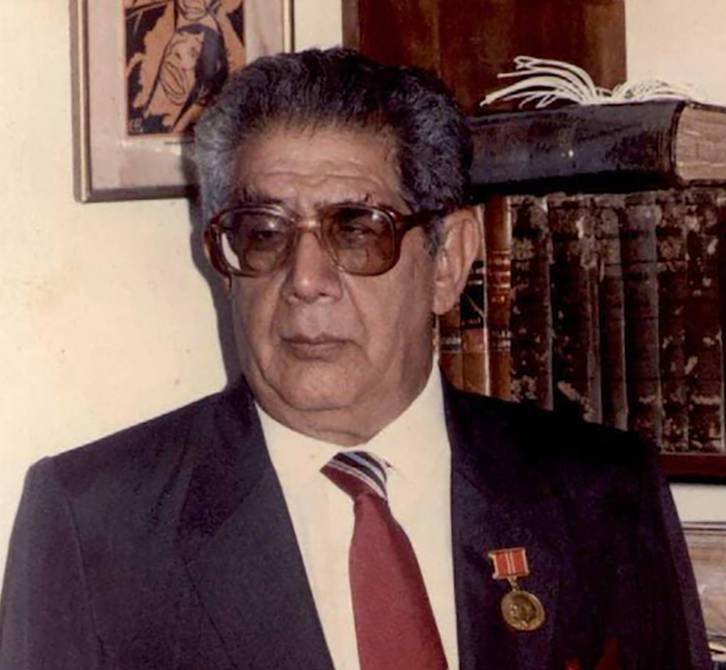Elías Muñoz Vicuña (Yaguachi, Guayas, May 10, 1922 – Guayaquil, February 10, 1997) was an historian, writer, university professor, and member of the Ecuadorian Communist Party. His historical essays include: El 15 de Noviembre de 1922 (1978), Biografía de Olmedo (1980), and Papel Histórico de Vicente Rocafuerte (1983). In 1976 he was appointed professor of Economic, Social and Political History of Ecuador at the Faculty of Economics of the University of Guayaquil; in 1984 he was declared a member of the Institute of Labor Law; and in 1985 member of the Guayas chapter of the House of Ecuadorian Culture, and Visiting Professor of the Institute of Diplomacy of the University of Guayaquil. In 1983 he became a member of the National Academy of History. He traveled to many countries as a representative of the Ecuadorian Communist Party, including to Cuba in 1966 per the invitation of Fidel Castro; and in 1970 at the Centenary of Lenin’s birth in Ecuador, the Soviet Union awarded him with the “Lenin Gold Medal” in a public ceremony. Several educational institutions are named after him in Guayaquil.
Member of the Ecuadorian Communist Party
Since his time as a university student, Muñoz had identified with the Ecuadorian Communist Party, which he joined in 1946, and from 1950 he began to collaborate with the newspaper “El Pueblo”, the party’s official publication. In 1957 he had already become one of the most notable members of the party, which is why he was appointed Member of the Central Committee; Two years later he was appointed Member of the Executive Committee, and as such he traveled that year to the city of Moscow (Russia), capital of the former Soviet Union, to attend the party’s conference. Later, between 1960 and 1962, he traveled to Cuba three times and attended various conferences in Hungary, Bulgaria and Romania. In July 1963, when the Military Junta was established, presided over by Commander Ramón Castro Jijón, Muñoz’ house was raided by members of the army who had orders to arrest him. As they did not find him, they requisitioned most of the books and documents from his archive and library, claiming they were “communist material,” which is why a brilliant work of bibliographic research carried out for more than fifteen years was lost.
Due to the political persecution that he suffered from the military dictatorship, for two years and eight months he had to remain hidden in the houses of his friends, and was only able to freely walk the streets again in 1966, when Mr. Clemente Yerovi Indaburu assumed the Presidency of the Republic. Thus, at the end of that same year, he was able to travel to Cuba at the invitation of Fidel Castro.
In 1970 he presided over the celebration in Ecuador of the First Centenary of Vladimir Lenin’s birth, and the government of the Soviet Union awarded him the “Lenin Gold Medal” in a public ceremony on August 10 of that year.
Family
His parents were Macario Muñoz Cordero and Carmelina Vicuña Muñoz.
Works:
- Obras Escogidas de Alfaro (1959) (two volumes)
- Lecturas Ecuatorianas (1968)
- La Guerra Civil Ecuatoriana de 1895 (1976)
- El 15 de Noviembre de 1922 (1978)
- Historia del Movimiento Obrero del Ecuador 1979-79 (1985)
- Biografía de Olmedo (1980)
- Los Generales no Corren (1981)
- Primero entre Iguales (1982)
- Papel Histórico de Vicente Rocafuerte (1983)
Education
- High school diploma from Vicente Rocafuerte School in 1942.
- Law degree from the University of Guayaquil in 1948.
Name variations
- Elías Gilfredo Muñoz Vicuña
- Elías Muñoz Vicuña
- Elías Muñoz

